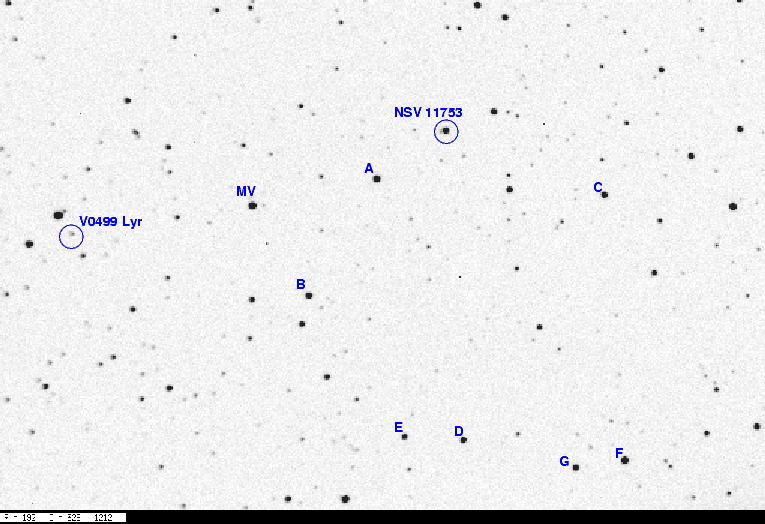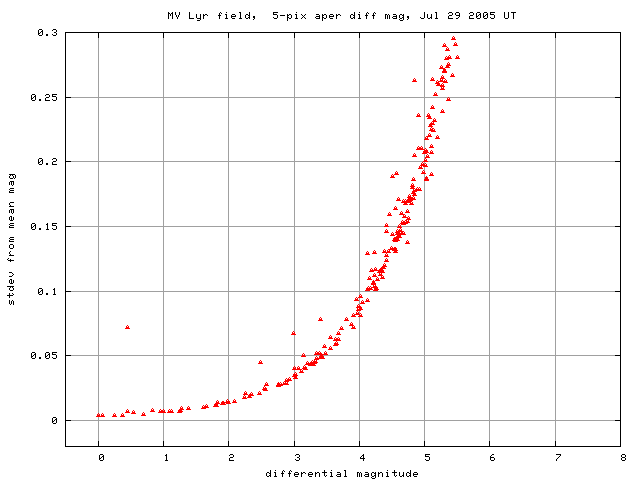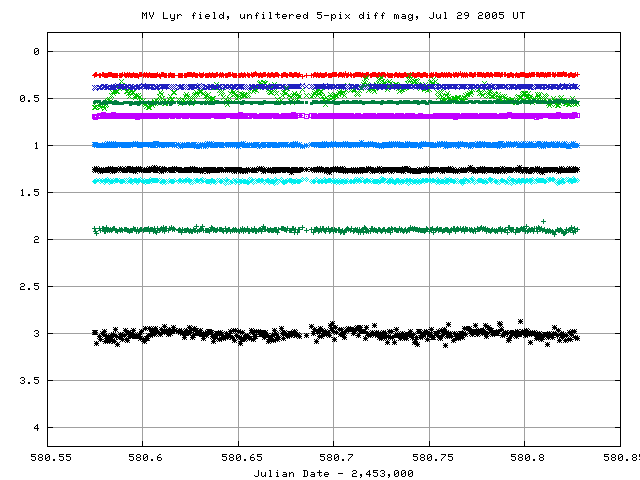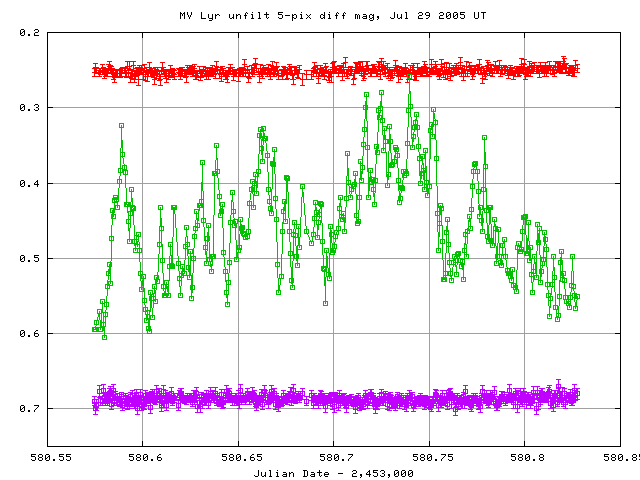
On the night of Jul 28/29, 2005 EDT, Tracy Davis and I used the RIT Observatory's 12-inch Meade telescope and SBIG ST8 CCD camera to monitor the cataclysmic variable star MV Lyr. This star is currently being monitored by the Center for Backyard Astrophysics. You can read Lew Cook's description of the system for very nice background information and an analysis of its behavior a few years ago.
The plan:
Notes from the night
Here's a chart of the field of MV Lry taken in an earlier run. The field is about 20 arcminutes wide. Click on the picture for a larger version.
The star marked "A" in the chart above is USNOB1.0 1367-0288714. It was measured by Henden and Honeycutt, PASP 107, 324 (1995), who found V = 12.518.
The star marked "B" on the chart above is GSC 0313201412. Lew Cook has found that this star may be variable with a small amplitude:
The chart above shows a circle around the star NSV 11753 , which is listed as a Cepheid with range from V=13.5 to V=14.4.
I measured the instrumental magnitude of each star with aperture photometry, using a radius of 5 pixels = 9.3 arcseconds, and sky defined by an annulus around each star. Following the procedures outlined by Kent Honeycutt's article on inhomogeneous ensemble photometry, I used all stars available in each image to define a reference frame, and measured each star against this frame. Below is a graph of the scatter in differential magnitude versus magnitude.

MV Lyr is the star near differential mag 0.5, with an elevated scatter. The other outliers in the second dataset are all stars near the edge of the chip, so their variability is just an instrumental artifact.
Light curves for selected stars in the field are shown below. MV Lyr, shown by light green crosses near the top, is clearly variable. The dark green points around differential magnitude 0.6 are NSV 11753, which showed no significant variation during the night. The black points around differential magnitude 3 are measurements of V0449 Lyr, which was not in eclipse this night. See Lew Cook's report on photometry of V0449 Lyrae.

Here's a closeup of the variation in MV Lyr itself:

I've made a table of the measurements themselves, with three different flavors of time. The differential unfiltered magnitudes from the ensemble solution has been shifted so that star "A" in my chart, has value 12.518, matching its V-band magnitude as determined by Henden and Honeycutt.
Here's the start of the table, which contains 425 measurements. That's a high for us with MV Lyr this season!
# Measurements of MV Lyr made at RIT Obs, Jul 29, 2005 UT, # made by Michael Richmond and Tracy Davis in good conditions. # All data taken with 12-inch LX-200 + no filter + SBIG ST-8 CCD # no focal reducer, so at native f/10 # Each exposure 30 seconds long; tabulated times are midexposure # and accurate only to +/- 1 second. # 'mag' is a differential magnitude based on ensemble photometry # which has been shifted so USNOB1.0 1367-0288714 has mag=12.518 # (the V mag from Henden and Honeycutt, PASP 107, 324, 1995). # # UT day JD-2,450,000 HJD-2,450,000 mag uncert Jul29.07468 3580.57468 3580.57708 12.861 0.014 Jul29.07523 3580.57523 3580.57763 12.861 0.014 Jul29.07576 3580.57576 3580.57816 12.851 0.014
Last modified 7/26/2005 by MWR.